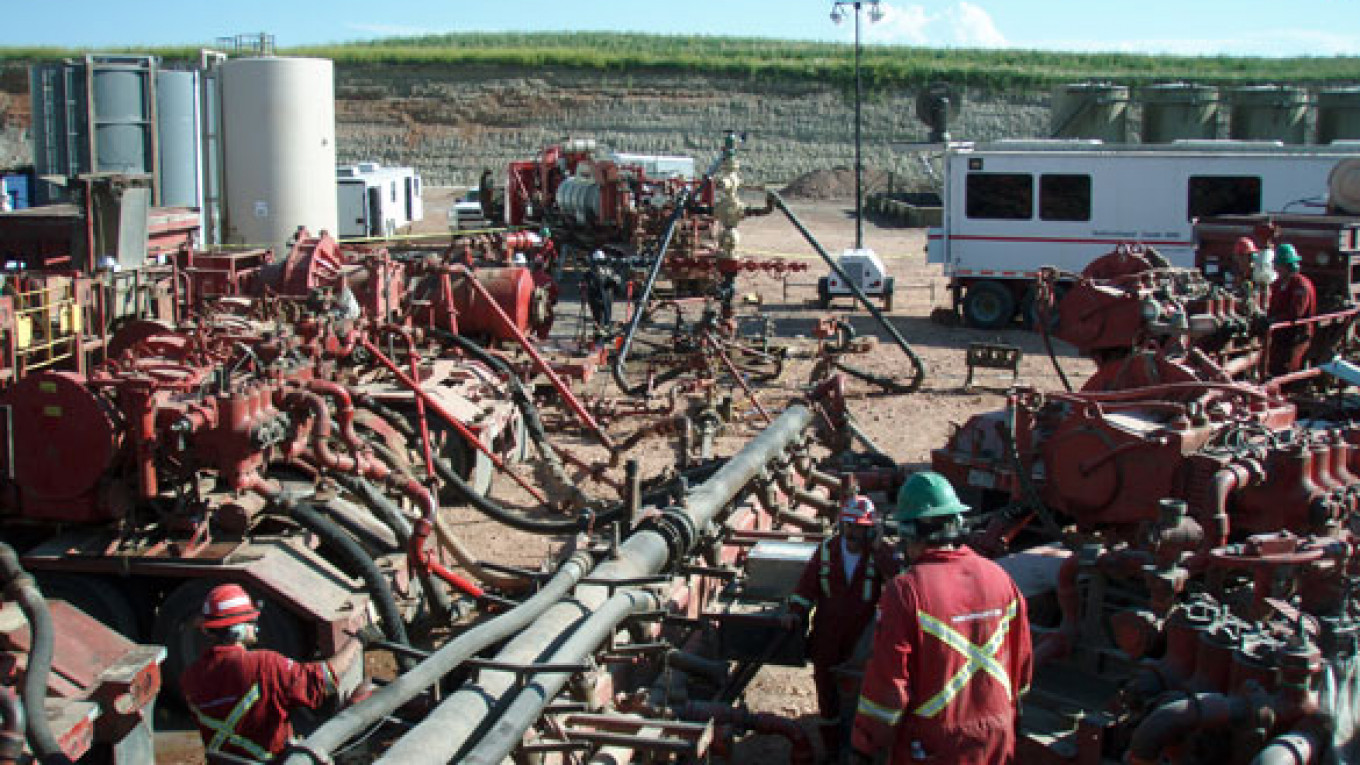Unfortunately for Russia, the U.S. has taken the lead in hydraulic fracturing technology and is now leading the world in overall petroleum exports. It is entirely possible that the U.S. will become energy independent in the next decade. The change in fortune for the world's energy producers has been dramatic and swift, and it has upset some long term geopolitical relationships.
However, Russia is estimated to have 25 percent more reserves in shale oil and natural gas than the U.S. The deposits are simply located in places that are harder to reach and will require more effort and skill to extract. But that is the silver lining for Russia.
It is well known that Russia needs to diversify its hydrocarbon-based economy, which contributed toward 50 percent of its economic growth since the turn of the century and currently accounts for 40 percent of its annual gross domestic product. The current government has founded its political legitimacy on ever rising energy production, the profits of which are returned to domestic spending.
The U.S. price for natural gas is one-third of what Russia is asking on the international market. This has resulted in falling hydrocarbon revenues for Moscow and a decline in economic growth below projections. Obviously, there is pressure on the government to produce growth and provide greater opportunities for its citizens.
Luckily for Russia, the U.S. is shooting itself in the foot. Hyped up environmental concerns have all but shut down energy exploration in California and other states, while the Obama administration is reducing exploration on federal lands. The specter of climate change has the full attention of the U.S. government, which is doing everything it can to reduce the use of hydrocarbon fuels.
Instead of fostering this nascent industrial growth, America is attempting to stifle it. The refusal of the Obama administration to approve the Keystone pipeline from Canada is just one example of this foolishness. Soon the Canadians will decide to just sell their shale oil to China.
Russia should do everything it can to further the development of hydraulic fracturing technology for use in frigid climates and expand its manufacturing base. Oil field services are a natural extension of a hydrocarbon economy — the capability to extract natural gas and shale oil from arctic environments. Instead of seeing cheap American gas as a threat, Russia should treat it as an opportunity to become more competitive on the global market and create a niche in technological expertise in polar extremes.
This would dovetail well with the recent Russian emphasis on the Arctic. Russia should also continue to reform its Tax Code to promote research, development, and exploration in this sphere. Competition should be used as a lever to push Russian industry ahead while the West is slowed by religious and environmental concerns. This will require opening up more oil field service contracts to competition and promoting a reduction of graft in an industry that is well-known in Russia to be rife with corruption.
Russia has a long, proud history of science and exploration. By turning the threat of cheap U.S. gas into a positive, Russia can leapfrog the competition and be a world leader in oil field services for decades to come. This will take serious effort to reduce corruption and incentivize competition for Russian and global firms in the oil field services arena. But the alternative is to be left behind by the world and to see Russia's economy continue to slow as the rest of the world capitalizes on the benefits of hydraulic fracturing technology.
Todd Wood, formerly director, emerging market debt capital markets at Cantor Fitzgerald in New York, is author of "Sugar" and other historical fiction novels.
A Message from The Moscow Times:
Dear readers,
We are facing unprecedented challenges. Russia's Prosecutor General's Office has designated The Moscow Times as an "undesirable" organization, criminalizing our work and putting our staff at risk of prosecution. This follows our earlier unjust labeling as a "foreign agent."
These actions are direct attempts to silence independent journalism in Russia. The authorities claim our work "discredits the decisions of the Russian leadership." We see things differently: we strive to provide accurate, unbiased reporting on Russia.
We, the journalists of The Moscow Times, refuse to be silenced. But to continue our work, we need your help.
Your support, no matter how small, makes a world of difference. If you can, please support us monthly starting from just $2. It's quick to set up, and every contribution makes a significant impact.
By supporting The Moscow Times, you're defending open, independent journalism in the face of repression. Thank you for standing with us.
Remind me later.






